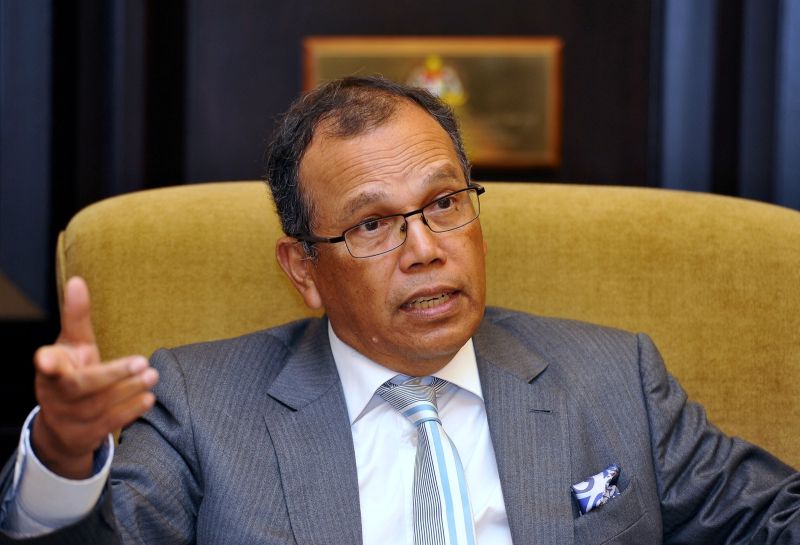KUALA LUMPUR, May 1 — The ‘endemic’ habit of postponing cases by judges and counsel have started to creep back in the judicial system, causing delays in the adjudication process, said Chief Justice Tun Raus Sharif.
He said he was concerned that the could impede the judicial reform programme carried out since late 2008.
Raus, who was involved in the reform since the beginning, had encouraged all quarters to inculcate a culture of trial date and hearing date certainty in all courts throughout the country.
He said adjournment of trials must be a rarity, where in developed countries such practice did not exist in their vocabulary.
“We must not allow the culture of requesting for postponements. I want everyone to be strict on this issue,” he said when opening the 52nd Judges Conference here, today.
Also present were Court of Appeal President Tan Sri Zulkefli Ahmad Makinudin, Chief Judge of Malaya Tan Sri Ahmad Maarop, Chief Judge of Sabah and Sarawak Tan Sri Panglima Richard Malanjum, Federal Court judges, High Court iudges and the judicial commissioners.
Raus said he would not entertain blanket applications for postponement of cases by judges citing conferences, annual general meetings, extraordinary general meetings, by any party, be it the bar or the Attorney General’s Chambers.
He said it also included reasons of postponement by counsels on the need to attend Parliament or state assembly sittings, conferences or any other functions for that matter.
“The rule is that, there shall be no postponement, except in the event of death or near death. This is definitely not a joke. It is a serious matter,” he said.
Thus, he wanted the judges to take on a stewardship role in managing their cases from the outset, rather than allowing parties alone to dictate the pace of litigation.
The chief justice said judges should not subject themselves to be dictated by the counsel’s tight schedule, readiness and availability, as well as postponement reason of counsel having their cases in another court.
As part of the reform success, Raus said, the only old cases pending for disposal were cases dated in 2017 which should be disposed at least within the early second half of this year.
As of March 31 this year, he said, 110 pre-2017 appeals were pending at the Federal Court, 214 pre-2017 appeals pending at the Court of Appeal and 1,799 pre-2017 cases pending at the High Courts throughout the country.
The breakdown of the pre-2017 civil and criminal cases pending in states are: Selangor, with 491 cases, followed by Kuala Lumpur (444 cases), Penang (149 cases), Kedah (126 cases), Johor (124 cases), Sabah (110 cases), Sarawak (88 cases), Perak (64 cases), Negeri Sembilan (52 cases), Terengganu (47 cases), Melaka (43 cases), Pahang (41 cases), Kelantan (12 cases) and Perlis ( eight cases). — Bernama



















